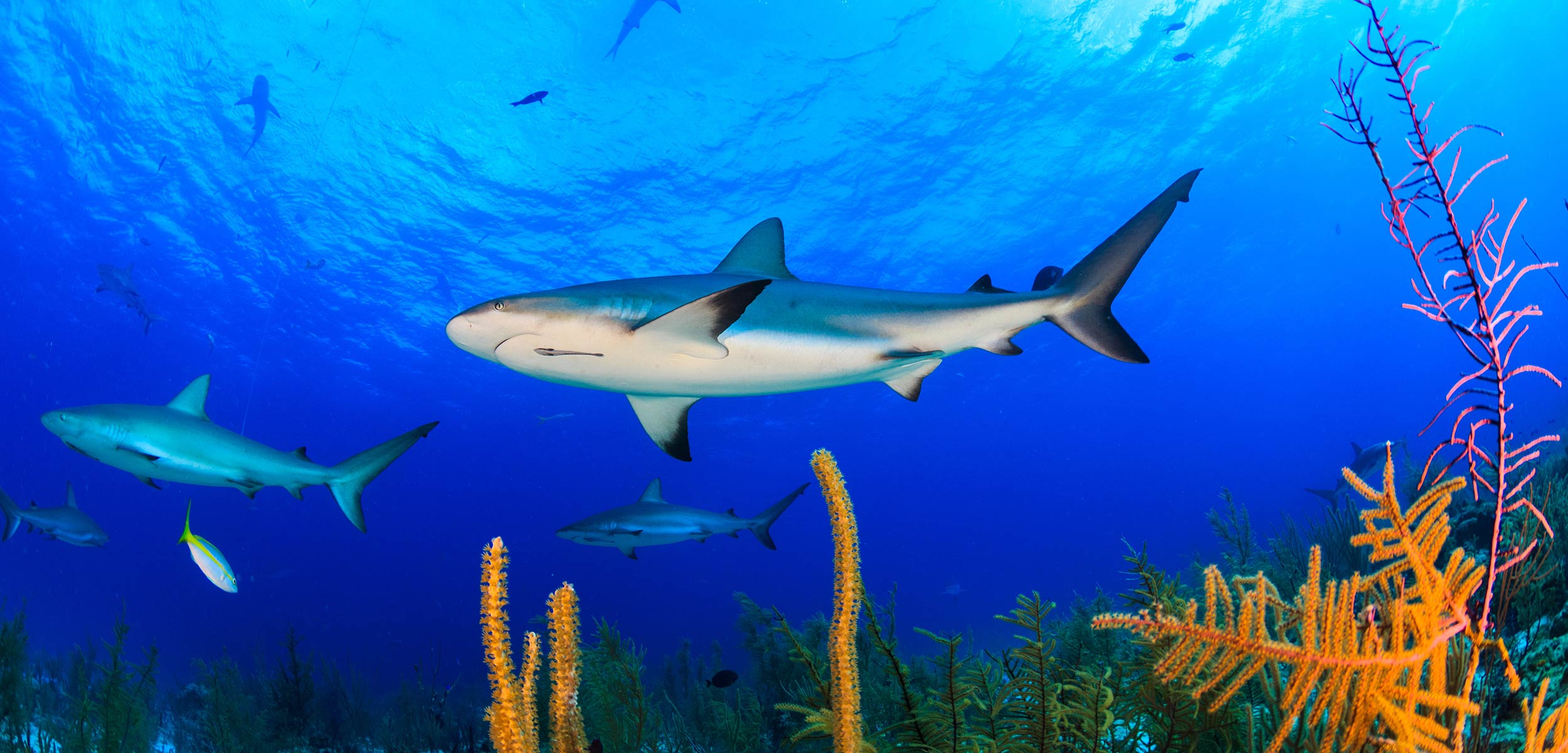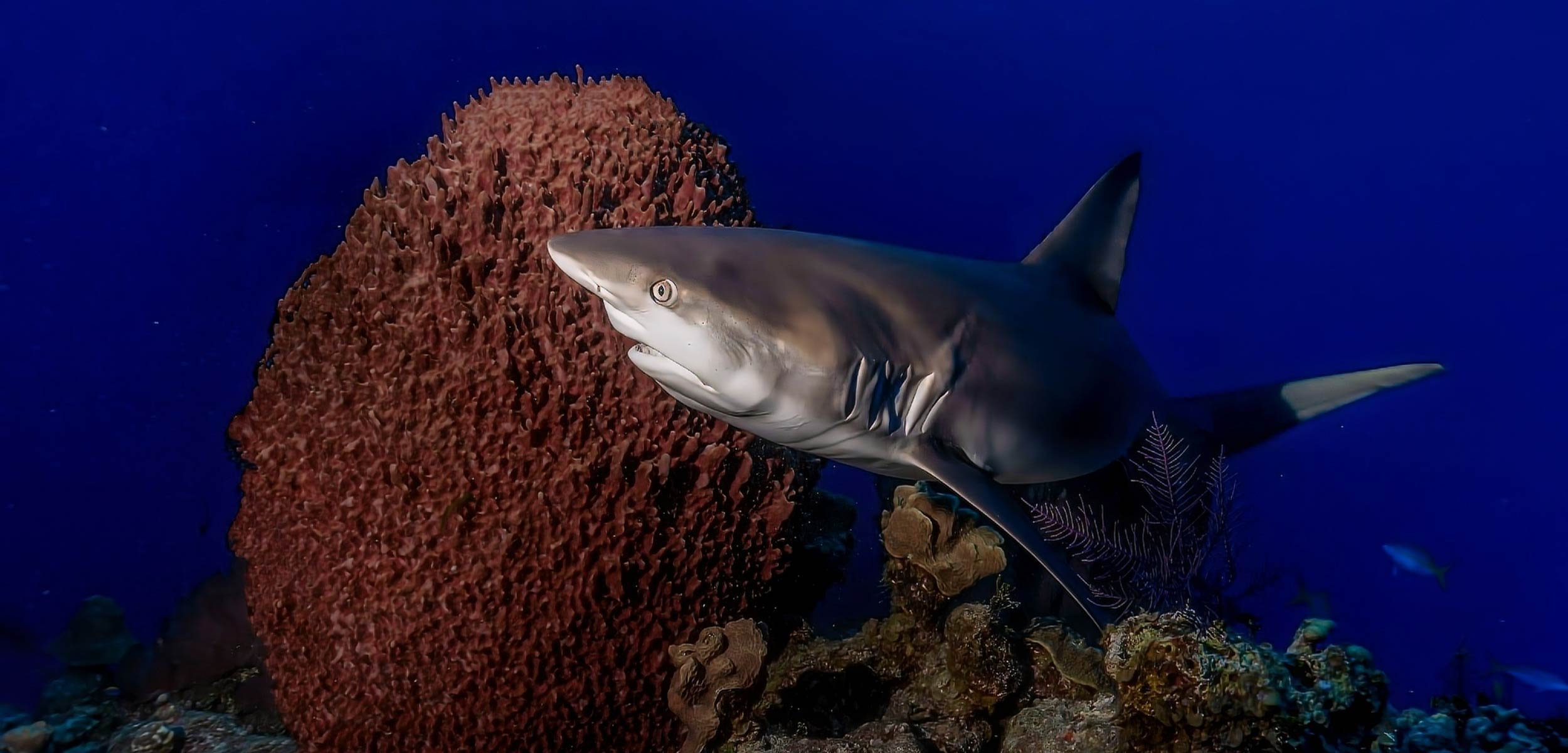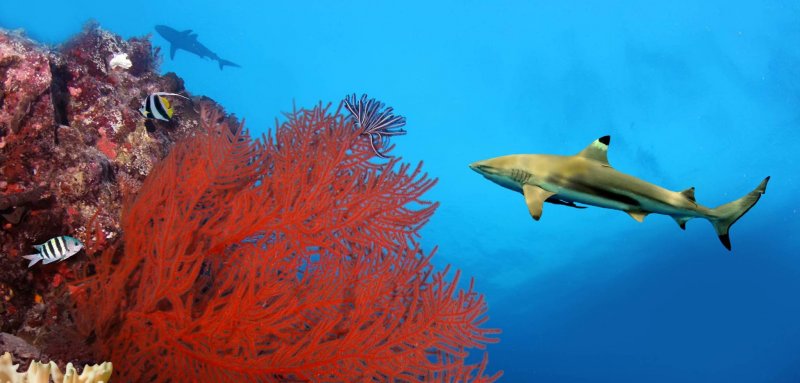Death, injuries, waves of terror, and retaliatory hunts have been rampant this summer at Egypt’s renowned Red Sea resorts. On September 13, yet another shark encounter resulted in an Egyptian woman losing her arm. This incident occurred in Dahab, the same city where a sighting in August had already ignited fear. Scenes of a Russian man fatally mauled by a tiger shark in Hurghada the previous month remain fresh in the public’s memory.
“The issue is getting out of hand. The [Egyptian] Ministry of Environmental Affairs tries to take control as much as possible, but the issue has never been properly studied [...] We cannot keep dealing with each incident momentarily, without a comprehensive strategic study of the issue on a national level,” said a ministry researcher who requested anonymity for safety reasons.
With each attack or sighting, authorities resort to a temporary solution: closing off the affected area and suspending activities for a few days.
It was not until the deadly attack in June that the Ministry of Environment announced an 18-month plan to install sensors for the first time in the vicinity of Hurghada. These sensors aim to monitor three types of sharks and study their behavior.
However, the ministry researcher emphasized the need for a more substantial, long-term study. “There needs to be a realistic study that looks into shark numbers, species, behaviors, areas where they are heavily located and where they venture to. Such a study can never be completed in just a year or so. Undertaking such a comprehensive study would require years of dedicated effort and ongoing observation," the researcher noted.
Since 2009, there have been 24 shark attacks in the Red Sea, seven of which were fatal, according to Dr. Mahmoud Hanafy, chief scientist at the Hurghada Environmental Protection and Conservation Association (HEPCA). Hanafy has been investigating shark attacks in Egypt for nearly 14 years.
“It goes without saying that the frequency of shark attacks has been on the rise, particularly in Egypt, compared to the rest of the world,” Hanafy said.
What may seem like isolated incidents now begs the question: What brings sharks to the shallow waters of Egypt’s seas?
What may seem like isolated incidents now begs the question: What brings sharks to the shallow waters of Egypt’s seas?
Why sharks attack
The portion of the Red Sea within Egypt's borders is characterized as "non-fertile." Its organic matter productivity is low, according to Hanafy, and thus offers limited fish resources. It is not a valuable fishing ground.
Yet the Red Sea is severely “overfished,” resulting in what Nadia Sherif, conservation officer at Nature Conservation Egypt (NCE), described as a “competition between fishermen and sharks.” As fish diversity dwindles, sharks expand their foraging territory and search for any food along the way to coastal shores.
“Sharks suffer from neurological abnormalities due to lack of nutrition… While shark attacks on humans for sustenance are rare, extreme hunger has driven such incidents at least three times in the Red Sea,” Hanafy stated.
While this is reason enough for sharks to seek nutrition elsewhere, destructive human behavior does not end there.
Human activities further compound this issue. To entertain tourists, some tour companies engage in the illegal practice of shark feeding. They lure sharks by throwing various types of food, including chicken, into the water to attract sharks. Tour guides adopt the same tactic at shark diving spots.
 Shark and fish swimming near coral reef underwater in the sea
Shark and fish swimming near coral reef underwater in the sea
Additionally, waste from tourist yachts is discarded into the sea, serving as a food source for sharks. Sherif noted Oceanic White Tip sharks in particular follow yachts to scavenge waste.
Moreover, certain ships, when exceeding weight limits, dispose of livestock into the sea while passing through the Suez Canal. The scarcity of food resources entices sharks to approach any available sustenance, Hanafy said.
Such actions erode the natural barrier between humans and sharks. “Feeding sharks leads to them associating food with humans,” she said.
Sherif pointed out yet another problem: an increased activity in coastal development, and the location of resorts being constructed. Some resorts are built on coral drop-offs, which are shark habitats. This puts humans and shark habitats at risk. Shark attacks can also occur during breeding and egg-laying seasons when sharks become more aggressive, Sherif explained.
Since the implementation of Egypt’s environmental protection law in 1994, investors must submit an environmental impact assessment outlining any potential harm their activities may inflict on Egypt's natural environments before commencing their operations. However, some companies continue to disregard the environment, often providing inaccurate information on their paperwork, and proceed with coastal “development”.
Habitat loss and encroachment
Human behavior not only damages sharks but also threatens Egypt’s entire marine ecosystem.
Overfishing and how it is practiced not only depletes fish populations but also devastates entire habitats. Fishermen resort to destructive practices like blast fishing with dynamite, and bottom trawling, which involve dragging metal nets along the seabed, causing widespread devastation and demolishing everything in its way, including coral reefs and seagrass beds. Coral reefs are particularly vital to the survival and diversity of fish species.
Some resorts are built on coral drop-offs, which are shark habitats. This puts humans and shark habitats at risk. Shark attacks can also occur during breeding and egg-laying seasons when sharks become more aggressive.
While the Red Sea’s Great Fringing Reef has been declared a resilient “Hope Spot” for its remarkable thermotolerance, it faces significant stress due to recreational activities. Moreover, corals are threatened by diseases originating from sewage discharge. During the 27th United Nations Climate Change Conference (COP27) hosted by Egypt, the conference declared 2,000 kilometers of Red Sea coral reefs a protected area.
The oil and gas industry plays a big role as well in habitat loss. Oil and gas companies drill into the seabed and destroy it without any environmental consideration. Oil spills and subsequent environmental disasters add insult to injury, exacerbating the damage. Egypt's relentless pursuit of fossil fuels, despite being criticized for it during its hosting of COP27, includes plans to drill for over 35 exploration wells within the next two years, spanning over 16 regions in the country’s south and the Red Sea by the end of 2023.
Egypt's waters are also prone to ocean acidification due to increased carbon dioxide levels in the air, resulting in heightened water acidity. This adversely affects calcium-dependent organisms like corals and crustaceans. Additionally, the looming threat of rising sea levels reduces sunlight penetration. The deeper the waters get, the less sunlight for photosynthesis, which impacts all forms of marine life.
 Shark and fish swimming near coral reef underwater in the sea
Shark and fish swimming near coral reef underwater in the sea
$200,000 per shark
If current human behaviors persist, the steep coral reef drop-offs that constitute a vibrant underwater ecosystem, which attracts millions of Egyptian and international tourists, might cease to exist.
Egypt boasts the world's most valuable coral reef tourism economy, contributing to 2 percent of its GDP. This amounted to $7 billion in 2019, according to a report from the High-Level Panel for Sustainable Ocean Economy.
Each shark attack usually leads to a brutal response, often in the form of a "massacre." Following a 2022 incident that claimed a tourist's life, Mako sharks were indiscriminately targeted and slaughtered for revenge even though a Tiger shark was behind the attack.
Diving with sharks in specific areas—such as the Elphinstone Reef, Brothers Islands (aka El-Ikhwa Islands), Daedalus reefs, and Saint John's reefs—ranks as one of the most expensive activities in Egypt. Each shark contributes approximately $200,000 annually to Egypt's economy, the ministry researcher pointed out, asserting the need to preserve and enhance this source of income, rather than jeopardize it.
However, Sherif pointed out that each shark attack usually leads to a brutal response, often in the form of a “massacre.” Following the attack in Hurghada, a group of citizens captured what they believed to be the culprit shark, and brought it back to shore where it was subjected to a gruesome beating with metal poles as it writhed around in agony until its death. Images circulated on social media displayed fishermen proudly posing with captured sharks of various species. Following another attack in 2022 that claimed the life of a Romanian woman, Mako sharks were indiscriminately targeted and fished for revenge, even though a Tiger shark was identified as the actual attacker.
"Shark fishing has, theoretically, been illegal since 1973, when Egypt became one of 100 countries to sign the CITES [Convention of International Trading of Endangered Species] Treaty, and sharks in the Red Sea were listed as an endangered species," according to the Food and Agriculture Organization of the United Nations.
As Sherif emphasizes, “The sea has been their habitat for thousands of years. We are the outsiders; we disrupted their habitat. Human interference greatly affects the ecosystem and their habitat, thereby influencing shark behavior."
Raseef22 is a not for profit entity. Our focus is on quality journalism. Every contribution to the NasRaseef membership goes directly towards journalism production. We stand independent, not accepting corporate sponsorships, sponsored content or political funding.
Support our mission to keep Raseef22 available to all readers by clicking here!
Interested in writing with us? Check our pitch process here!



